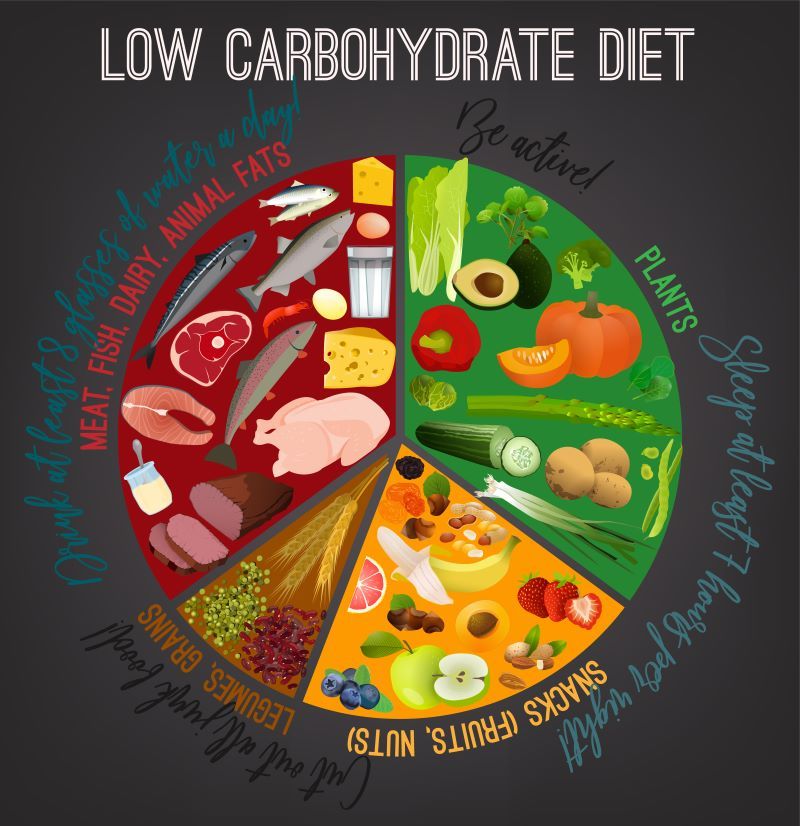With obesity affecting around 40% of Americans aged 51 and older, the risk for serious health complications such as cardiovascular disease, type 2 diabetes, and certain cancers is notably increased. Emerging scientific evidence suggests that low-carbohydrate diets, including the Mediterranean and Keto diets, not only facilitate sustainable weight loss but also enhance heart health, making them an optimal choice for seniors seeking a healthier lifestyle.

The Power of Low-Carb Eating for Seniors
Low-carb diets have been identified as a superior dietary choice for older adults, offering a plethora of delicious and nutritious meal options that make adherence to this diet relatively straightforward. Unlike high-carbohydrate diets linked to increased disease risk, low-carb eating plans have been shown to significantly improve body composition, fat distribution, and metabolic health in seniors. An eight-week study highlighted that participants on a low-carb diet experienced greater weight and fat mass loss compared to those on a conventional high-carb diet.
Cost-Effective Nutrition with Profound Health Benefits
Adopting a low-carb diet can also be economically beneficial, especially for seniors on a fixed income. Opting for plant-based foods and fish over costlier meats and processed foods not only saves money but also promotes a healthier diet. Let's delve into two pivotal low-carbohydrate diets that have been proven to significantly enhance senior health and longevity.
The MIND Diet: Enhancing Cognitive Function Through Nutrition
The MIND diet, a fusion of the DASH and Mediterranean diets, focuses specifically on foods that boost brain health. Research has shown that staples such as leafy greens, nuts, and berries may significantly lower the risk of neurodegenerative diseases. Developed through a study funded by the National Institute on Aging, the MIND diet's adherence can reduce Alzheimer’s risk by up to 53%.
MIND Diet Guidelines:
- Weekly consumption of leafy greens and berries
- Daily intake of whole grains and vegetables
- Optional daily glass of wine
- Regular snacking on nuts and inclusion of beans, poultry, and fish in meals
- Preference for extra-virgin olive oil as the primary cooking oil
The Paleo Diet: Returning to Our Ancestral Roots for Optimal Health
The Paleo diet encourages eating as our Paleolithic ancestors did, focusing on meat, fish, fruits, and vegetables while avoiding modern processed foods and dairy. By mimicking the dietary habits of our ancient forebears, seniors can steer clear of modern diseases, manage weight, and maintain overall health. The diet emphasizes unprocessed foods and lean proteins, advocating for creative substitutions like vegetable noodles and lettuce wraps to replace refined carbohydrates.
Paleo Diet Essentials:
- Emphasis on unprocessed, plant-based foods
- Breakfast options like vegetable omelets over processed cereals
- Creative use of vegetables and lean proteins to replace modern staples
- Avoidance of added sugars and refined carbohydrates
Embracing Low-Carb Diets for Senior Wellness
For seniors navigating the challenges of maintaining health and managing weight, low-carbohydrate diets offer a promising solution. Whether it’s the brain-boosting MIND diet or the ancestral-inspired Paleo diet, transitioning to low-carb eating can significantly improve quality of life, prevent chronic diseases, and ensure longevity. As always, consulting with a healthcare provider before making dietary changes is advised, but for many seniors, low-carb diets could indeed be the key to a healthier, more vibrant future.